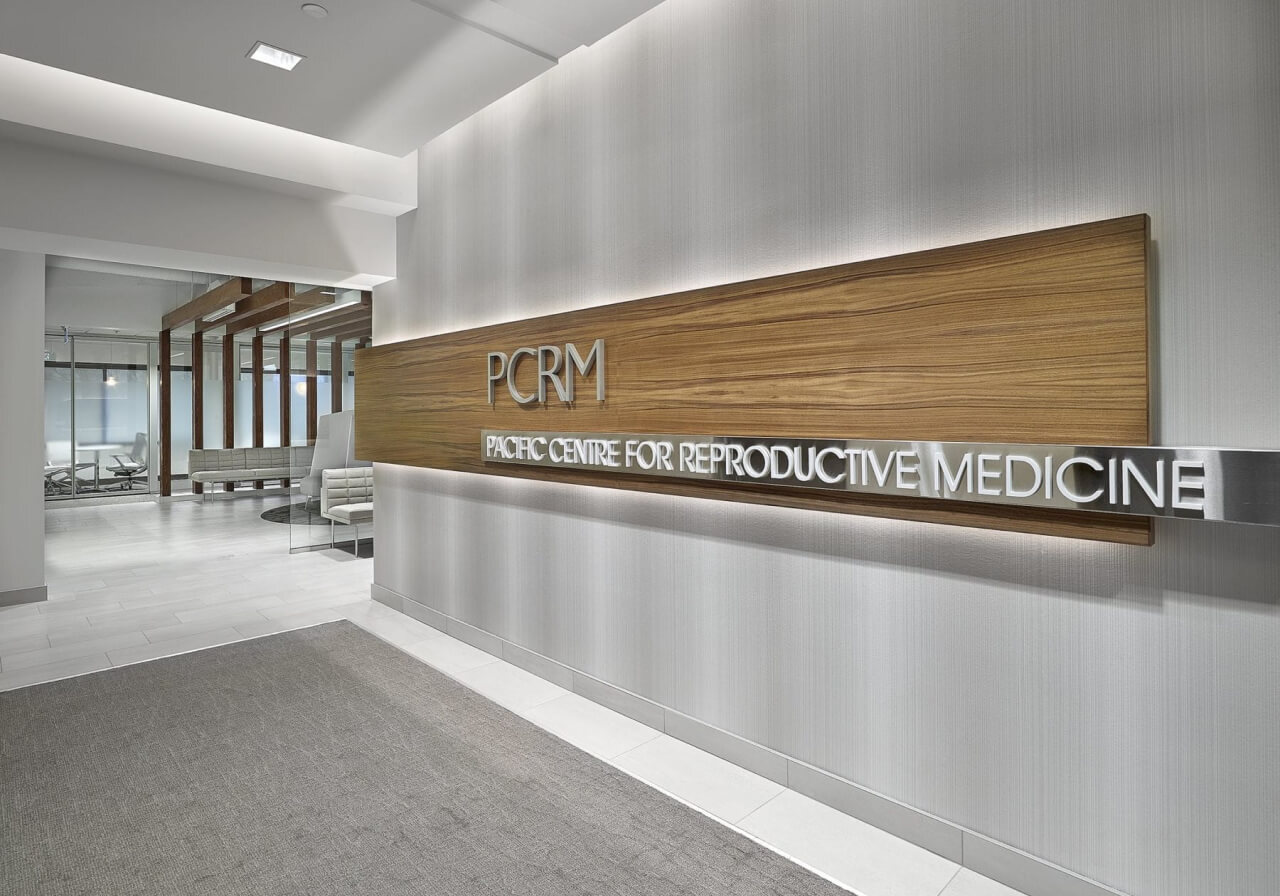Schedule a First Trimester Screening Consultation
Our team welcomes the opportunity to discuss possible treatment paths with you, including first-trimester screening and PE screening.
Looking for information on BC's funded IVF program? Learn more
Looking for information on BC's funded IVF program? Learn more
The Prelude Connect App is now available for all patients! Prelude Connect App
The Prelude Connect App is now available for all patients! Prelude Connect App
First Trimester Screening (FTS) is a non-invasive method of assessing early fetal growth, anatomy, and the chances of certain chromosomal differences. It is performed through ultrasound and bloodwork at 11-14 weeks gestation.
PCRM is excited to announce that, as of 2020, our FTS program also includes screening for pre-eclampsia (PE), a multi-system disorder that affects 2-5% of pregnant women and is a leading cause of maternal and fetal morbidity and mortality. It is characterized by high blood pressure and signs of damage to organ systems, usually the liver and kidneys. PE screening details are provided below.
First Trimester Screening was developed largely through the work of the Fetal Medicine Centre, London, UK, and the pioneering ideas of Professor Kypros Nicolaides. Since 1990, Nicolaides has been targeting research towards the early detection of genetic syndromes, in methods that involve examining the baby at an early stage in its development (the end of the first trimester, or 11-14 weeks). Since its inception, new discoveries have been added to the original finding of Nuchal Translucency (NT).
The most common chromosome differences include trisomy 21 (Down syndrome), trisomy 18 (Edward syndrome), and trisomy 13 (Patau syndrome). All of these disorders affect the baby’s development and range in severity from mild to severe. In the process of FTS, 6 markers are used to statistically assess the chance of one of the syndromes. These markers all fall under a quality review program through the Fetal Medicine Foundation, to ensure reproducibility and global uniformity of testing. The markers include:
The combination of all six, in conjunction with maternal age, provides a 96% likelihood of detection, with a 3% chance of a falsely positive result. Full fetal anatomy is also reviewed for major defects.
PE screening uses a combination of maternal risk factors, blood pressure measurements, ultrasound, and blood test markers to predict the risk of pre-term PE in a pregnancy. Women identified at high risk for PE are recommended to take prophylactic aspirin to reduce their risks. PE screening includes:
PCRM offers several options for prenatal screening, including first-trimester screening (FTS), non-invasive prenatal testing (NIPT), pre-eclampsia screening (PE), and a combination of the three (TriO). The following table summarizes what each prenatal screening option offers.
Prenatal Screening | TriO | NIPT only | FTS & PE only | |
Singleton | Twins | Standard NIPT (singleton or twins) | ||
First Trimester Screening Abdominal ultrasound: viability, growth, early anatomy, markers of chromosome differences (NT, FHR, DV, NB)* Maternal serum: PAPP-A and hCG | ||||
Pre-Eclampsia Screening (maternal blood pressure, serum PlGF, PAPP-A, history questionnaire) | ||||
NIPT: Chromosome differences -Trisomy 21 (Down syndrome), Trisomy 18, Trisomy 13 | ||||
NIPT: Sex chromosome differences (X, XXY, XXX, XYY) | optional | Not Available | (singleton only) | |
NIPT: Fetal sex(es) | optional | optional | ||
NIPT: Microdeletion Syndromes | 6 (optional) 22q11.2 del syndrome Cri-du-chat syndrome 1p36 deletion syndrome Prader-Willi syndrome Angelman syndrome Wolf-Hirschhorn syndrome | Not Available | 6 (singleton only, optional) 22q11.2 del syndrome Cri-du-chat syndrome 1p36 deletion syndrome Prader-Willi syndrome Angelman syndrome Wolf-Hirschhorn syndrome | |
Cost (CAD - no tax) | Starting at $1500 | Starting at $900 | $850 | |
Our team welcomes the opportunity to discuss possible treatment paths with you, including first-trimester screening and PE screening.
